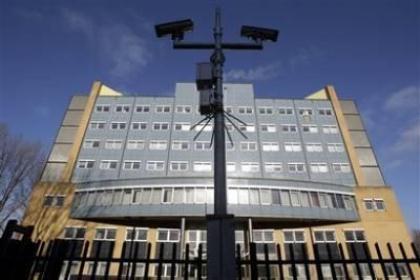
By TOM BROWN FOR MAILONLINE — A former mayor of El Kharayeb has gone on trial in Valencia for organ trafficking. The five defendants allegedly tried to buy a liver from illegal immigrants in Spain. But a volunteer working with undocumented immigrants reported them to police. An Algerian woman was ruled out as a candidate because she was pregnant.
A millionaire Lebanese politician has gone on trial in Spain for organ trafficking after he allegedly tried to buy a liver from poor illegal immigrants. Hatem Akouche and four other defendants appeared in court in Valencia for trying to buy part of a liver for a transplant. The 69-year-old — who has an incurable liver disease — is believed to have solicited vulnerable people for part of their liver in exchange for cash and work.
Akouche — former mayor of the Lebanese city El Kharayeb — allegedly did this via two of his nephews, who managed a marble company in Novelda, Alicante Province, Valencia Region. But the men were caught when a volunteer for an NGO working with undocumented immigrants learnt of an Algerian woman who had been contacted by them.
The 28-year-old woman had gone for tests in preparation for the organ donation but was eventually ruled out as a candidate because she was pregnant at the time. The case represents the first time that potential human organ trafficking has been detected in Spain. Lebanese billionaire Hatem Akouche and four other defendants appeared in court in Valencia for trying to buy part of a liver for a transplant from poor illegal immigrants in Spain Lebanese billionaire Hatem Akouche and four other defendants appeared in court in Valencia for trying to buy part of a liver for a transplant from poor illegal immigrants in Spain
Police in Valencia began investigating and found that at least seven others had gone to clinics to undergo the same tests as the Algerian woman. They discovered that each potential candidate had been accompanied by the same relative of Akouche during their visits. Each person was ‘especially vulnerable both because of their origin and because of their economic hardship’, said the prosecution.
The men’s plan failed when staff at a Barcelona hospital became suspicious of a homeless Romanian man who was due to donate part of his liver there. But all of the trobule could have been avoided. After consulting a second time with doctors, Akouche’s son found out that he was compatible with his father, and agreed to the donation. Akouche eventually received part of his son’s liver on 26th August 2013, but he was arrested in the VIP lounge of Valencia Airport five month’s later. The politician claimed he was unaware at the time that buying vital organs from living people was prohibited under Spanish law.
He went on trial in Valencia in 2019, which ended with an agreement between the prosecution and the accused. The Lebanese millionaire and his relatives did not contest the court’s version of events and he accepted a year in prison, while his relatives accepted two years. He went on trial in Valencia in 2019, which ended with an agreement between the prosecution and the accused. But the group is now back on trial after the Supreme Court annulled the outcome and ordered a retrial He went on trial in Valencia in 2019, which ended with an agreement between the prosecution and the accused. But the group is now back on trial after the Supreme Court annulled the outcome and ordered a retrial
But the group is now back on trial after the Supreme Court annulled the outcome of that trial and ordered a retrial. The court ordered the retrial to recognise The National Transplant Organization, an independent agency within the Spanish Ministry of Health, as an injured party. The State Attorney, representing the Spanish Ministry of Health, is now leading the prosecution. The others now in court are the former mayor’s son, the two nephews, and another Lebanese national. They are accused of promoting, favouring or facilitating the illegal transplantation of human organs of others. The prosecution is requesting three years in prison for Akouche and seven for the other four defendants.



